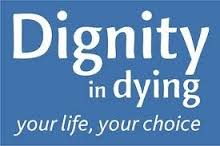 Dying with dignity campaigner, Peter Short, died late last year on his own terms and in control, but he did not live long enough to see the introduction of a law that offers the same to all seriously ill Australians.
Dying with dignity campaigner, Peter Short, died late last year on his own terms and in control, but he did not live long enough to see the introduction of a law that offers the same to all seriously ill Australians.
Choice in end of life is an area of the euthanasia debate that needs to be discussed openly and honestly if we are to advance public discussion beyond the right-to-die versus the sanctity-of-life deadlock. And it is particularly significant in light of the Medical Services (Dying with Dignity) Exposure Draft Bill 2014 introduced by Australian Greens health spokesperson and former GP, Senator Richard Di Natale.
Understandably, certain doctors are uneasy talking about killing for fear of being characterised as insensitive, dangerous or indeed criminal, as is the case with Dr. Nitschke, who was suspended by the Medical Board of Australia in July 2014 for providing a person he did not know well with information on how to die.
Some doctors argue that talk about institutionalised killing contradicts the Hippocratic oath, emphasising that medical discussion should focus on healing, helping and offering hope. But as health professionals who care for the terminally ill know, this is not always possible. People continue to die horrible deaths that could have been averted if not for sate imposed restrictions. As an aged care nurse told me, “I’ve seen desperately sick people die miserable deaths in institutions while hooked up to machinery and doped up on drugs, when all they wanted was to die at home on their own terms with friends and loved ones beside them.”
It is these dreadful stories of death that family, friends and health carers often relate on radio talkback, letters to the editor and social media in an attempt to move legislators to reform our anti-euthanasia laws. And as much as our political leaders need to hear such stories, it is the stories of good deaths that, I believe, can influence the dying with dignity debate in a positive manner.
A good death is integral to a good life. And although a good life means different things to different people, most would agree that a life lived freely, independently and in accordance with one’s beliefs, plans and preferences is something that most, if not all, people aspire to. No person wants to be forced to live – and die – in a way that contradicts his or her values. As the American philosopher Ronald Dworkin put it, “Making someone die in a way that others approve, but the dying person believes a horrifying contradiction of his life, is a devastating, odious form of tyranny”.
Freedom to live one’s life in accordance with one’s values lies at the heart of the dying with dignity debate. This was certainly the view of Dying with Dignity campaigner and cancer suffer, Peter Short, who lobbied for law reform to Australia’s euthanasia laws.
Peter Short, who died in palliative care on Monday 29 December last year, was a fiercely independent person determined to live the best life that his health circumstances permitted.
I had the pleasure and privilege of meeting Peter and his wife, Elizabeth, late last year over dinner. Peter was not interested in talking about what his health circumstances did not allow. He wanted to get on with doing the things that invigorated and excited him.
He spoke enthusiastically about his numerous meetings with politicians, celebrities and journalists. He was excited about the documentary that he was putting together with his friends, family and dedicated professionals. And he was particularly looking forward to having a conversation with Prime Minister Tony Abbott on the Dying with Dignity Bill – a conversation that took place days before Peter passed away.
Peter’s jour de vive can be attributed to the choices that were available to him. As he told, Michael Short in an interview with The Age last year, “if I didn’t have the choice and control, I would be terrified”.
The final message posted by his wife, Elizabeth, on Peter’s blog, Tic Toc Tic Toc dying to a Killer Clock, highlighted the importance of choice: “The fact that Peter had the knowledge and the means to end his own life was an invaluable part of his palliation. It allowed him to live the remainder of his life exactly as he wanted…He did not fear the end as he knew it was his to control he if so chose.”
Choice permitted Peter to die the way he lived – happy and in control. Dr Rodney Syme, in his address at Peter’s funeral, spoke about how his advice and access to medication gave Peter control over the end of his life. As he said, “Having Nembutal didn’t shorten his life. In the end he chose not to use it. Ultimately Peter died in palliative care. What Peter was arguing for was choice, and in the end he exercised choice; the actual choice he made is not important, the fact that he had a choice is what matters.”
Peter Short was fortunate to have access to medical practitioners who did everything within their power to provide choice and control. As Peter passionately argued, choice is a psychological emollient for the seriously ill. And it is something that all Australians deserve and have a right to.

